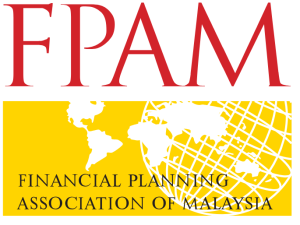
Building a Lasting Family Legacy: The Power of Shared Family Values
January 6, 2025Congratulations to Our December 2024 CFP Module 4 Exam Graduates!
March 5, 2025By KP Bose Dasan
Malaysia’s national budget continues to expand year after year, outpacing both inflation and GDP growth. For 2025, it has reached RM 421 billion—a figure that raises important questions about fiscal sustainability.

Source: Tax Vantage Management (based on Ministry of Finance, The Edge estimates)
The Essence of Smart Tax Planning
With e-invoicing and the Inland Revenue Board of Malaysia’s enhanced oversight, tax compliance has become more transparent. However, this doesn’t eliminate the need for strategic tax planning. The government actually encourages business growth and GDP expansion—they want you to earn more, not contract your activities to avoid taxes. While annual announcements of personal tax reliefs and incentives often grab headlines, we need to look at the bigger picture. Government expenditure keeps rising, and new taxes may be on the horizon—including potential inheritance taxes. This situation calls for greater financial awareness and prudence.
Historical Context and Modern Reality
Malaysia’s current tax system represents a pragmatic blend of different economic philosophies, each contributing distinct elements to our approach:
From Karl Marx’s philosophy, we see elements in our progressive tax system, where higher earners pay a larger share of taxes to support social programmes and public services. However, unlike pure communist systems, Malaysia maintains private property rights and a market economy.
Adam Smith’s free-market principles are reflected in our business-friendly policies that encourage entrepreneurship and private sector growth. The government provides tax incentives for business expansion and innovation, allowing market forces to drive economic development.
John Maynard Keynes’s influence is evident in how the government actively uses fiscal policy—including tax incentives and relief programmes—to stabilise the economy during downturns and promote growth. This includes initiatives like tax breaks for strategic industries and stimulus measures during economic challenges.
The complexities of Malaysia’s economic model deserve deeper exploration, but understanding this hybrid nature of our tax system provides valuable context for current policies.
Practical Tax Planning Considerations
When diving into the intricacies of tax planning, it’s essential to consider some key questions that will effectively guide your financial strategy:
• How can we optimise income tax obligations?
• What strategies exist for managing foreign source income tax?
• How should we approach capital gains tax?
• Should we operate as individuals or create business entities?
• Where should we direct investments, considering tax rates, exchange rates, ROE, risk, and opportunities?
As Robert Kiyosaki, author of Rich Dad, Poor Dad, emphasised, staying informed about tax matters is crucial for financial success. Investing time in quality tax education—whether through seminars or other resources—can provide significant returns. With the emergence of AI, we now have additional tools to help navigate tax planning, provided we ask the right questions
To FPAM members: May 2025 bring you success in your financial planning endeavours!
About the Writer
KP Bose Dasan, 73, holds an Economics degree from Universiti Malaya and an MBA from Cranfield University, but he values the education and experience he gained while working with the Inland Revenue Department Malaysia the most. Transitioning from a tax manager at Hanafiah Raslan Mohamad to running his own practice, he discovered that formal education alone isn’t enough, leading him to financial planning and eventually to a rewarding career in teaching.



